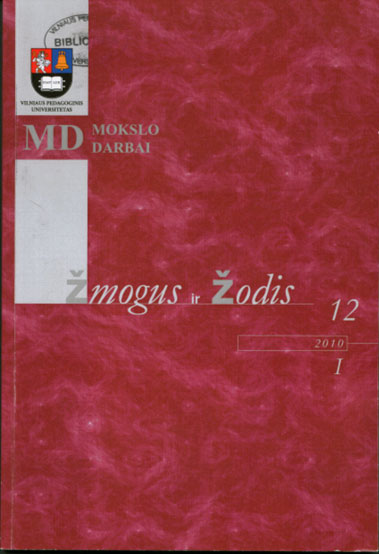Negrožinio teksto supratimo mokymas pagrindinėje mokykloje: kaip įgyvendinti programos reikalavimus ugdymo procese?
Teaching Non-literary Text Comprehension in Basic School: Implementation of Curriculum Requirements in the Education Process
Author(s): Vilija SalienėSubject(s): Language and Literature Studies
Published by: Vytauto Didžiojo Universitetas
Keywords: National Curriculum; non-literary text comprehension; reading strategies; reading skills.
Summary/Abstract: Reading comprehension is a complex process which involves understanding the gist of the text, the information presented, and the implicit meanings encoded. Learning any subject relies on a text, and essential reading comprehension skills are formed during native language lessons. In pedagogical and methodological works by foreign scholars (Cook, 1989; Duke, Pearson, 2000; Anderson, Armbruster, 1984), reading has long been understood as an active cognitive process on the reader’s part, and not a skill. Previously, reading was considered a process based on grasping the gist of the text, drawing conclusions, and retelling the text. The latest research in the psychology of reading (Cook, 1989) claims that reading comprehension entails the construction of meaning by the reader on the basis of the text, and thus meaning is created, as opposed to passively perceived: different people will understand the same text differently. The National Research of Student Achievement in Reading and Writing 2002–2008 revealed that grade 6, 8 and 10 reading comprehension skills remain at nearly the same level year after year: students are better at answering questions which require finding information or drawing straightforward conclusions, and they find summarizing, interpretation and evaluation of the information found in the text more challenging. Students have difficulties with questions which require the knowledge of literary theory and description of linguistic devices. Similar conclusions may be drawn from an analysis of the reading comprehension part of the 2004–2008 state examination papers in Lithuanian as a native language. Reading comprehension therefore remains an important curriculum-related issue. The aim of this article is to analyze reading comprehension requirements set in the National Curriculum and the implementation of the requirements in the education process. The research focuses on the Lithuanian language curriculum and grade 5–10 textbooks used in basic schools. Research methods involve the analysis of subject- related and methodological sources and the analytical-descriptive approach. The article considers the place of reading as a type of linguistic activity in the Lithuanian language curriculum, discusses the National Curriculum in terms of its scope and skills development, presents possible reading strategies, and analyses textbooks from the perspective of non-literary reading. The article concludes that the content and requirements of the National Curriculum provide the necessary conditions for the development of the required reading comprehension skills but that not all textbooks focus enough on these skills.
Journal: Žmogus ir žodis
- Issue Year: 12/2010
- Issue No: 1
- Page Range: 150-157
- Page Count: 8
- Language: Lithuanian

